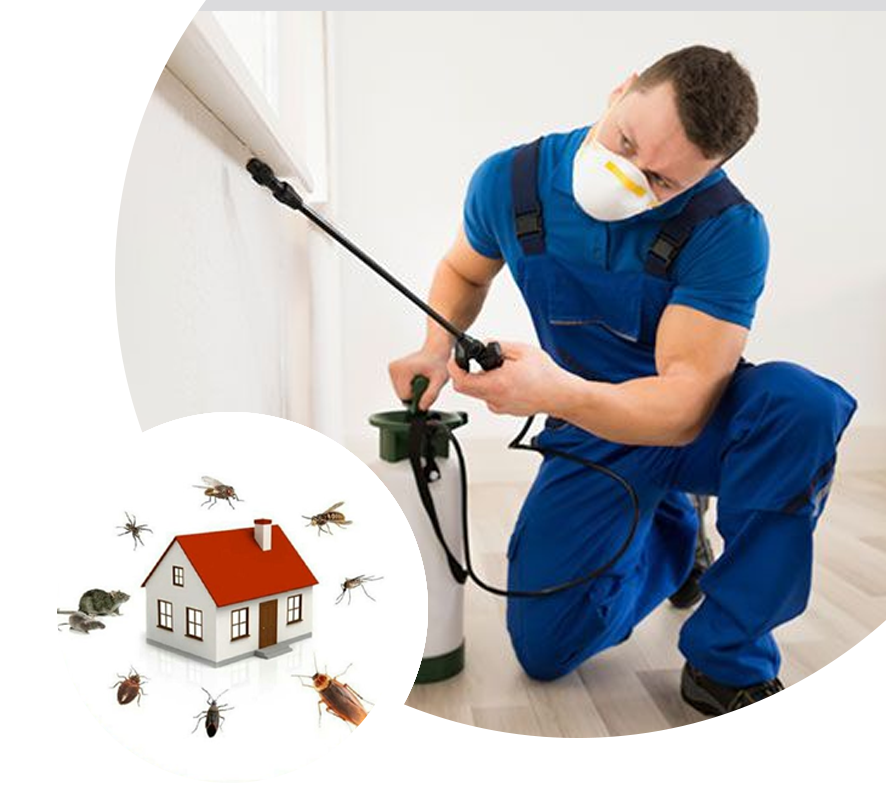Comprehensive Pest Control Services: Maintain Your Residential Property Pest-Free!
Comprehensive Pest Control Services: Maintain Your Residential Property Pest-Free!
Blog Article
Specialist Pest Control Techniques for Long-Term Results
In the world of insect control, accomplishing continual efficacy and long-term outcomes needs a careful technique that transcends mere elimination. Expert bug control techniques encapsulate a comprehensive method that begins with an extensive inspection and analysis, adhered to by precise insect recognition to understand their actions patterns. The implementation of Integrated Bug Management (IPM) principles, paired with eco-conscious treatments, forms the cornerstone of lasting bug eradication. The real test lies in the continuous monitoring and maintenance of the treated areas, ensuring a pest-free setting for the direct future. By diving into the intricacies of these strategies, a much deeper understanding of professional insect control techniques for sustaining end results emerges.
Evaluation and Assessment
Upon entering a residential or commercial property for parasite control solutions, the initial action is a thorough inspection and assessment to determine the level of the problem and figure out the most effective treatment strategy. Professional bug control professionals are trained to meticulously check out the properties, seeking indications of bug task such as droppings, chomp marks, nests, or any structural damages. They will also evaluate the problems that may be attracting bugs, such as food sources, water leakages, or entrance factors.

Pest Recognition and Habits

Moreover, comprehending the habits of the determined insect is essential to carrying out efficient control steps. As an example, recognizing where pests nest, what they prey on, and their activity patterns can help pest control professionals create techniques to remove them successfully. Some bugs might be nocturnal, while others are a lot more energetic throughout the day. This expertise permits for the application of therapies at optimal times for optimum efficiency.
Integrated Pest Management (IPM)
Integrated Bug Administration (IPM) approaches incorporate numerous techniques to control and stop pest invasions in a sustainable and eco-friendly way. pest control. By integrating approaches such as biological control, environment manipulation, adjustment of cultural methods, and using immune selections, IPM aims to lessen the use of chemical pesticides
Among the vital concepts of IPM is the emphasis on prevention. This proactive method entails monitoring insect populations routinely to spot any kind of possible concerns before they rise. By identifying pest problems early, pest control steps can be applied quickly and properly.
Furthermore, IPM advertises the usage of safe bug control techniques whenever feasible. This can consist of using natural predators of the insects, introducing helpful pests, or using scents to interrupt mating patterns. By minimizing reliance on chemical pesticides, IPM not only shields the atmosphere but also aids preserve an equilibrium in the ecosystem.
Environmentally-Friendly Treatments
Applying eco-conscious strategies in parasite control treatments can efficiently deal with infestations while prioritizing ecological sustainability. Environmentally-friendly treatments concentrate on reducing the influence of bug control techniques on ecological communities, non-target organisms, and human health.
One more trick aspect of environmentally-friendly therapies is the use of natural and biodegradable items that break down swiftly without leaving dangerous deposits in the environment. Herb pesticides originated from plants like chrysanthemums or neem offer efficient bug control while posing minimal risk to non-target varieties. Moreover, utilizing techniques like warm therapies or scent traps can target specific insects with precision, decreasing the general environmental effect of pest control practices.
Continuous Monitoring and Maintenance
Regular monitoring and Exterminator DC maintenance are essential elements of reliable parasite control monitoring. Ongoing surveillance plays a crucial role in making sure that pest infestations are spotted early and dealt with immediately. Routine inspections by skilled professionals are needed to determine any signs of insect activity, analyze the performance of previous therapies, and make changes to the bug control strategy as needed. By monitoring pest populations over time, pest control specialists can track patterns, prepare for prospective concerns, and execute safety nets to minimize the risk of future invasions.
In addition to surveillance, maintenance practices are important for long-term pest control success. This includes carrying out proper cleanliness steps to eliminate possible food and water resources for parasites, sealing entry indicate prevent parasites from entering the facilities, and dealing with any structural problems that can help with parasite infestations (bed bug exterminator). By including ongoing surveillance and upkeep into an integrated pest monitoring technique, services can guarantee a pest-free environment and safeguard their residential property versus pricey damage and wellness dangers
Final Thought
To conclude, making use of specialist parasite control techniques such as complete inspection and evaluation, exact pest recognition and understanding of their habits, integrated parasite management approaches, environmentally-friendly treatments, and recurring tracking and maintenance are important for accomplishing long-lasting outcomes in pest control. By applying these techniques, people can successfully handle bug problems and preserve a pest-free atmosphere in a sustainable fashion.
Report this page